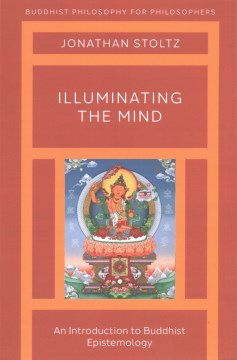
Illuminating the Mind
Publisher,Oxford Univ Pr
Publication Date,
Format, Paperback
Weight, 408.23 g
No. of Pages, 260
This book provides readers with an introduction to epistemology within the Buddhist intellectual tradition. It is designed to be accessible to those whose primary background is in the Western" tradition of philosophy and who have little or no previous exposure to Buddhist philosophical writings. The book examines many of the most important topics in the field of epistemology, topics that are central both to contemporary discussions of epistemology and to the classical Buddhist tradition of epistemologyin India and Tibet. Among the topics discussed are Buddhist accounts of: the nature of knowledge episodes, the defining conditions of perceptual knowledge and of inferential knowledge, the status of testimonial knowledge, and skeptical criticisms of the entire project of epistemology. The book seeks to put the field of Buddhist epistemology in conversation with contemporary debates in philosophy. It shows that many of the arguments and debates occurring within classical Buddhist epistemological treatisescoincide with the arguments and disagreements found in contemporary epistemology. The book shows, for example, how Buddhist epistemologists developed an anti-luck epistemology-one that is linked to a sensitivity requirement for knowledge. Likewise, the book explores the question of how the study of Buddhist epistemology can be of relevance to contemporary debates about the value of contributions from experimental epistemology, and to broader debates concerning the use of philosophical intuitions about knowledge"--

